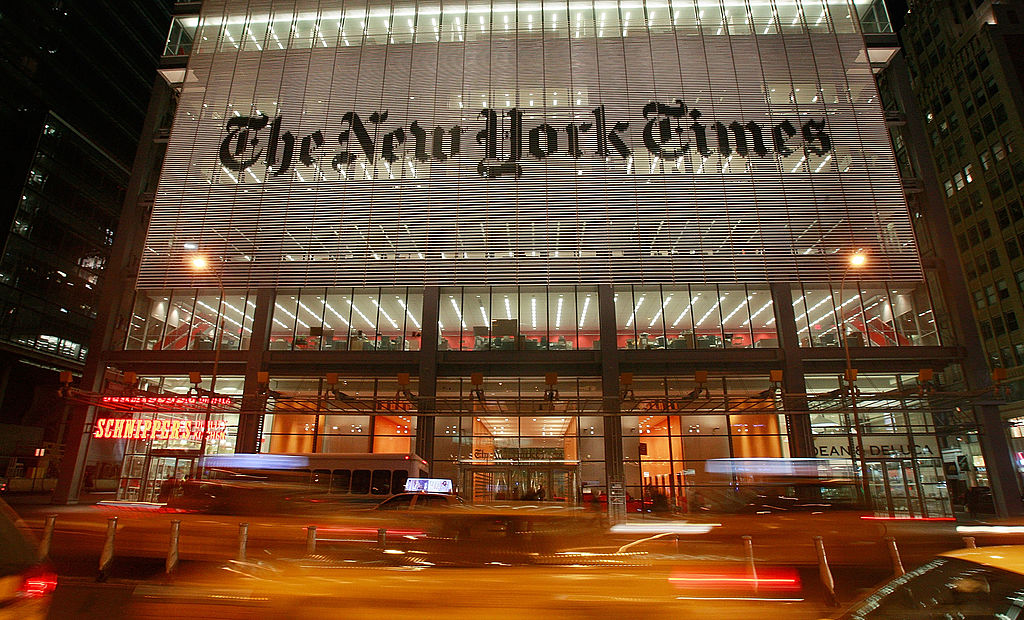The New York Times’ editorial board is raising the alarm over its concern that Americans are losing their ability to “speak their minds” without “fear of being shamed or shunned.”
In an editorial published on Friday, the editorial board wrote, “For all the tolerance and enlightenment that modern society claims, Americans are losing hold of a fundamental right as citizens of a free country: the right to speak their minds and voice their opinions in public without fear of being shamed or shunned.”
“This social silencing, this depluralizing of America, has been evident for years, but dealing with it stirs yet more fear. It feels like a third rail, dangerous. For a strong nation and open society, that is dangerous,” it continued.
The editorial pointed the finger at “the political left and the right,” which it argued are “caught in a destructive loop of condemnation and recrimination around ‘cancel culture.'”
It went on:
“Many on the left refuse to acknowledge that cancel culture exists at all, believing that those who complain about it are offering cover for bigots to peddle hate speech. Many on the right, for all their braying about cancel culture, have embraced an even more extreme version of censoriousness as a bulwark against a rapidly changing society, with laws that would ban books, stifle teachers and discourage open discussion in classrooms.”
As a result, the article argued that Americans are “understandably confused” about “what they can say and where they can say it.”
“Free speech is predicated on mutual respect,” the Times editorial board writes. When public discourse in America is narrowed, it becomes harder to answer the many other urgent questions we face as a society. https://t.co/LAfLLoGyv1
— New York Times Opinion (@nytopinion) March 18, 2022Do you think Americans are losing their ability "The New York Times' editorial board is raising alarm over its concerns that Americans are losing their ability to "speak their minds"?
The editorial board added, “People should be able to put forward viewpoints, ask questions and make mistakes, and take unpopular but good-faith positions on issues that society is still working through — all without fearing cancellation.”
Additionally, it highlighted a poll conducted by the Siena College and the Times’ Opinion section that found just 34% of respondents said they believe “all Americans enjoyed freedom of speech completely.” Meanwhile, 84% said they believed it was a “very serious” or “somewhat serious” problem that Americans do not speak freely due to fear.
It argued:
“Freedom of speech is the bedrock of democratic self government. If people feel free to express their views in their communities, the democratic process can respond to and resolve competing ideas. Ideas that go unchallenged by opposing views risk becoming weak and brittle rather than being strengthened by tough scrutiny. When speech is stifled or when dissenters are shut out of public discourse, a society also loses its ability to resolve conflict, and it faces the risk of political violence.”
The editorial board said it plans to “identify a wide range of threats to freedom of speech” and “offer possible solutions.”
“Free speech is predicated on mutual respect, that of people for each other, and of a government for the people they serve. Every day, in communities across the country, Americans must speak to one another freely to refine and improve the elements of our social contract,” the editorial continued.
Finally, it said, “What do we owe the most vulnerable in our neighborhoods? What conduct should we expect from public servants? What ideas are so essential to understanding American democracy that they should be taught in schools? When public discourse in America is narrowed, it becomes harder to answer these and the many other urgent questions we face as a society.”

























 Continue with Google
Continue with Google